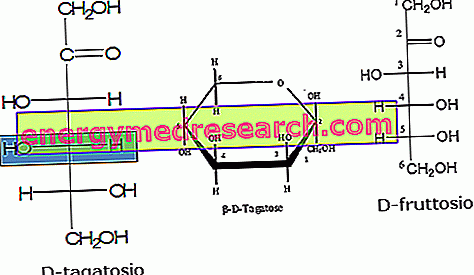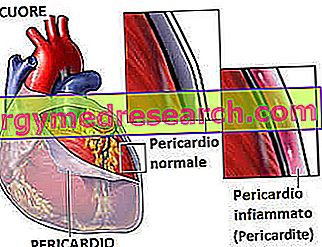Watch the video
X Watch the video on youtubeNutrition and physical activity
In sport and physical activity in general, nutrition plays a fundamental role; before trying out a training session, for example in the gym, it is necessary for the body to be put in conditions of:
- Best support the most intense training stimulus possible
- Quickly recover from one series to another
- Extend performance for as long as necessary
- Keep your blood sugar steady for proper brain function
- Never reach levels of energy and water-salt depletion that require an excessively long muscle recovery between one session and another

To facilitate the understanding of "what and how" to eat before training, we will divide the nutritional principles of nutrition into two categories:
- nutrients to be guaranteed through daily nutrition
- nutrients to be guaranteed through nutrition before training in the gym.
NB. Introducing certain foods into the other meals of the day rather than before training does NOT mean that they are not fundamental to the subject who trains, far from it! Unfortunately, the sportsman's diet must also take into consideration digestion and metabolization times, hypersensitivity (if any), subjectivity, training time, etc., therefore, it is not always possible to "load" the meal significantly before training.
Daily food
Nutrients to be guaranteed through daily nutrition
This group of molecules contains above all the nutrients commonly called "functional", that is, those that perform functions: structural, bioregulation, precursor, etc. Taking into consideration the macronutrients, it is possible to define that: the essential amino acids deriving from high biological value proteins (meat, fish, eggs, association of legumes and cereals etc.) and the omega3 and omega6 essential fatty acids contained in the oils (extra virgin d 'olive, soy, flax, fish, etc.) must be guaranteed ESPECIALLY from the daily nutritional balance; they represent a fundamental substrate for many metabolic functions as well as muscle recovery from training (also called supercompensation). Therefore, amino acids and fats must be supplied in the right quantities and carefully distributed in the daily diet, in order to constantly guarantee their metabolic availability. The same is true for vitamins, trace elements, antioxidants, fiber and water.
The water supply, even though it needs proper compensation even during training, should not be neglected throughout the day. Body hydration is essential to maintaining the overall physiological efficiency, especially of the kidney; the sportsman is a subject who engages in activities and efforts that often transcend the common predisposition of the human body; therefore, metabolic reactions (and needs) are also different compared to a sedentary person. Functional and structural modifications of the respiratory, circulatory, skeletal system, etc. I am clear proof of this; however, this adaptation occurs in response to a set of stimuli that affect the composition of the blood. The azotemia rises, the buffer systems are hyperactivated, the production of ketone bodies increases, the catecholamines modify the overall hormonal structure etc .; but to allow gases, nutrients, hormonal mediators and all other substances dissolved in the blood to reach the various districts, the blood plasma MUST maintain a certain volume, therefore a certain transport capacity. Therefore, a hydrated organism is first of all an organism that correctly responds to stimuli and that recovers to the best of its possibilities; But that is not all! Blood hydration also affects post-exercise recovery; whereas the metabolic function of the kidneys is the purification of the blood through filtration, and in the case of dehydration a plasma saving process is activated by which they decrease their work, it is obvious that the rapid elimination of toxic catabolites ( responsible for post-exercise systemic fatigue) is almost directly proportional to blood volume (volume).
Generally, to ensure the supply of vitamins and antioxidants it is sufficient to pay attention to the QUALITY of the foods that are consumed during the day, because (taking for granted a balanced diet) their contribution increases proportionally with the increase of calories . On the contrary, for minerals (especially potassium [K] and magnesium [Mg]) it is essential to accurately assess the level of overall sweating; if the sportsman sweats decisively, it is essential to evaluate together with a professional the possibility of integrating the daily intake of mineral salts through the use of simple over-the-counter products.
Protein Snack - Pre-Workout Snack
X Go to the Video Page Go to the Video Recipes Section Watch the video on youtubeFeeding Before Training
Nutrients to be guaranteed through nutrition before training
Nutrition before training in the gym must be fundamentally energetic because, as already illustrated, the molecules useful for homeostatic maintenance and post-exercise physical recovery are distributed more or less equally throughout the day (except for other kinds of needs such as weight loss); the same cannot be said for cross-country and middle-distance athletes, who would need a different post-exercise meal (much more energetic) than the one recommended after weight training (containing a higher protein ration). Starting from the assumption that when working with people and not with numbers, all recommendations are subject to individual compliance (or tolerability), in principle it is possible to define that:
the meal before training in the gym must have characteristics of:
- High digestibility
- High energy density (never less than 250-300kcal)
- Glucid prevalence, possibly deriving from foods (and not supplements such as maltodextrins or vitargo) characterized by a medium or better low glycemic index
Furthermore, it should be consumed at a temporal distance from the training that allows both digestion and (possibly) partial metabolism (fructose); let's go into more detail.
The predominantly carbohydrate foods are mainly honey, cereals and derivatives (wheat, barley, rye, spelled and millet, then pasta, bread, biscuits, polenta, etc.), potatoes, chestnuts, fruit (almost all, with the exception of avocado or of coconut) and some vegetables. The choice between one or the other food depends on: the presence of other ingredients (seasoning oil, tuna, cured meats, low-fat cheeses, etc.), food portions and contained fiber. The presence of fats and proteins contained in other foods significantly lowers the glycemic index of the meal due to the digestive slowdown; therefore, a mixed meal cannot be consumed less than 2: 30-3: 00h before the session; the same is true for food portions, that is, the greater the quantity of food, the longer the digestion time will be.
With regard to dietary fiber, it can be used (for example by inserting vegetables into a sandwich) to slow down the absorption of sugars and prolong their absorption times in the event that there is no medium or low glycemic index; however, it is important to remember that: by exaggerating with the intake of dietary fiber, waiting times prior to the session could be extended too much.
In short, nutrition before training in the gym must first of all ensure energy support for:
- Save reserve glycogen
- Maintain good blood sugar levels until the start of the session.
It follows that the choice of food must especially favor foods with good energy density but with a medium or low glycemic index, so as not to cause an excessive insulin spike that would quickly reduce blood sugar and negatively affect the state of mental concentration at the beginning of work out. It is possible to consume some fruits (apple, pear, orange etc.), which besides being easily digestible, have a sufficiently low glycemic index, perhaps associating them with a small portion of basmati rice, or wholemeal pasta or a sandwich with grilled peppers or to another fruit with a high glycemic index (ripe banana) or some corn / rice / wheat biscuits with NON-sweetened honey / jam, etc. The association of a low-calorie fruit, but containing dietary fiber, to another food characterized by a higher glycemic index, allows to balance the absorption of carbohydrates and to keep the blood sugar fairly constant over time (up to about 2: 00h ); the same applies to some vegetables (carrots, potatoes and peppers deprived of the peel) if accompanied by simple white bread.
Alternatively, for less susceptible people, it is possible to eat up to 30 minutes before training; obviously, with a similar timing it will be essential to make use of simple carbohydrates (honey, banana, sweet jam, etc.) or semi-complexes (BEN COTTO lean bread) with a high glycemic index, in order to drastically reduce absorption times without worrying about the peak insulin that will be automatically moderated by catecholamine elevation during training.



